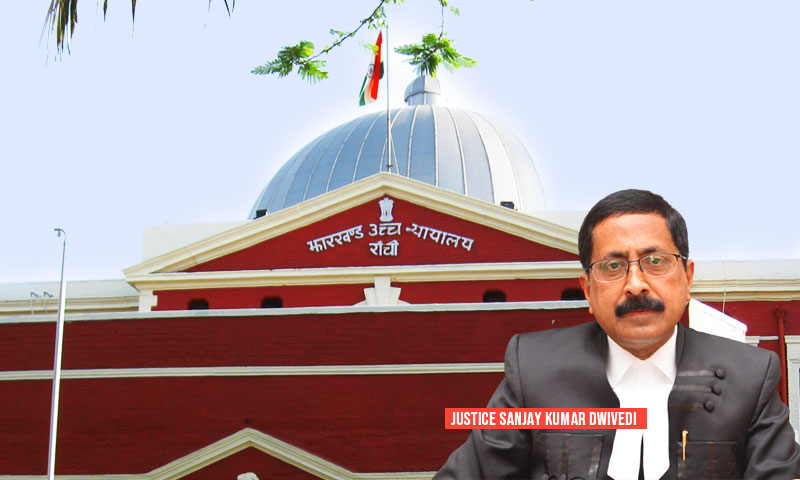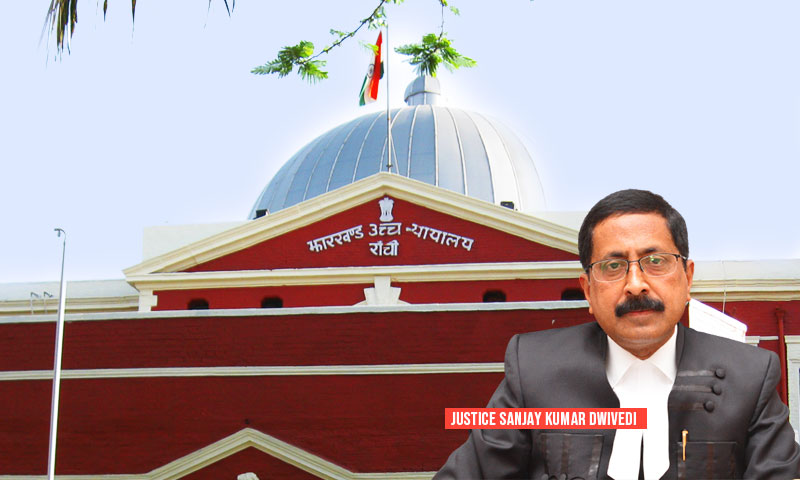Party Delays In Filing Written Statement, But Trial Court Unnecessarily Blamed For Delay In Disposal Of Case: Jharkhand High Court


The Jharkhand High Court has recently dismissed a petition filed under Article 227 of the Constitution, holding that a challenge to earlier orders passed in a civil title suit could not be revived through repeated petitions once those orders had attained finality.
The Court said in its Order that the petitioners had themselves invited the situation by failing to appear and file their written statement in time.
Justice Sanjay Kumar Dwivedi, in his order said, “In the instant case, as has been discussed herein above the only reason disclosed by the petitioners for not being able to file written statement by way of filing different petitions is that the Lawyer was not well, however, no supporting documents have been brought before the learned Court and, thereafter, further petition has been filed, which has been decided by the learned Court by the impugned order. The learned Court has rightly held that the said petition is barred by res judicata and there is no liberty by the High Court to file fresh petition before the learned trial court“.
“The orders passed by the Court can be set-aside only on the limited ground of illegality, irrationality and procedural impropriety. What has been discussed herein above, the petitioners herein are responsible for inviting such situation and unnecessarily, the Courts are being blamed of delay disposal of the cases,” the high court added.
The high court was hearing a petition filed by two individuals – Ganesh Prasad Gupta and Meera Gupta, seeking to set aside the order passed by the trial court whereby the trial court had refused to recall three previous orders which had successively declined to accept the petitioners’ written statement in an ongoing civil title suit related to property.
The petitioners had appeared before the trial court previously in 2015, but failed to file their written statement within the prescribed period. As a result, they were debarred from doing so under Order VIII Rule 1 of the Civil Procedure Code.
Subsequent attempts to have their written statement accepted were rejected. Their plea for reconsideration was again declined in 2017. They then filed a writ petition before the High Court which they later withdrew without seeking liberty to file a fresh petition, after which, they again approached the trial court in 2022 seeking recall of the earlier orders.
This petition too was dismissed in 2023 on ground of res judicata and had further observed that the High Court has not given any liberty to file fresh petition before the trial court. Pursuant to this petitioners moved the High Court.
The petitioners argued that the earlier delay in filing the written statement was because of the ill health of their previous counsel and should not prejudice their right to defend. It was contended that Order VIII Rule 1 of the CPC is directory in nature and not mandatory, and the courts are empowered to allow written statements even beyond the 90-day limit in appropriate cases. The petitioners argued that the delay had occurred in his background urging the high court to condone the same and direct the trial court to accept the petitioners’ written statement.
Alternatively, the opposite parties, argued that the petitioners had shown a “casual approach,” filing one petition after another on the same issue despite the matter having already been decided. It was submitted that since the earlier writ petition had been withdrawn without liberty, the present petition was barred by the principle of res judicata.
The Court after examining the record, noted, “By one petition, three orders have been sought to be recalled and those orders have attained finality as the challenge of that has not been made and one order challenged before this Court, has been simply withdrawn by the petitioners.”
The Court further noted, “It is well-settled that even in a pending suit if similar nature of petition is being filed, which has already been decided earlier, the principle of res judicata is attracted.”
The high court thus dismissed the petition.
Case Title: Ganesh Prasad Gupta & Anr. v. Manoj Kumar Gupta & Ors.
Case Number: C.M.P. No. 554 of 2023

